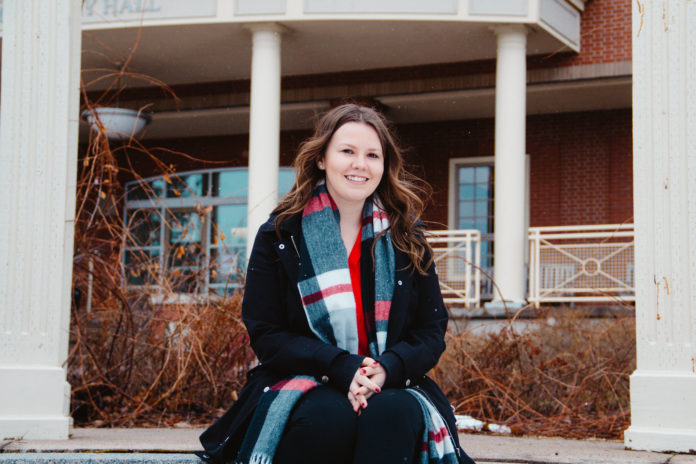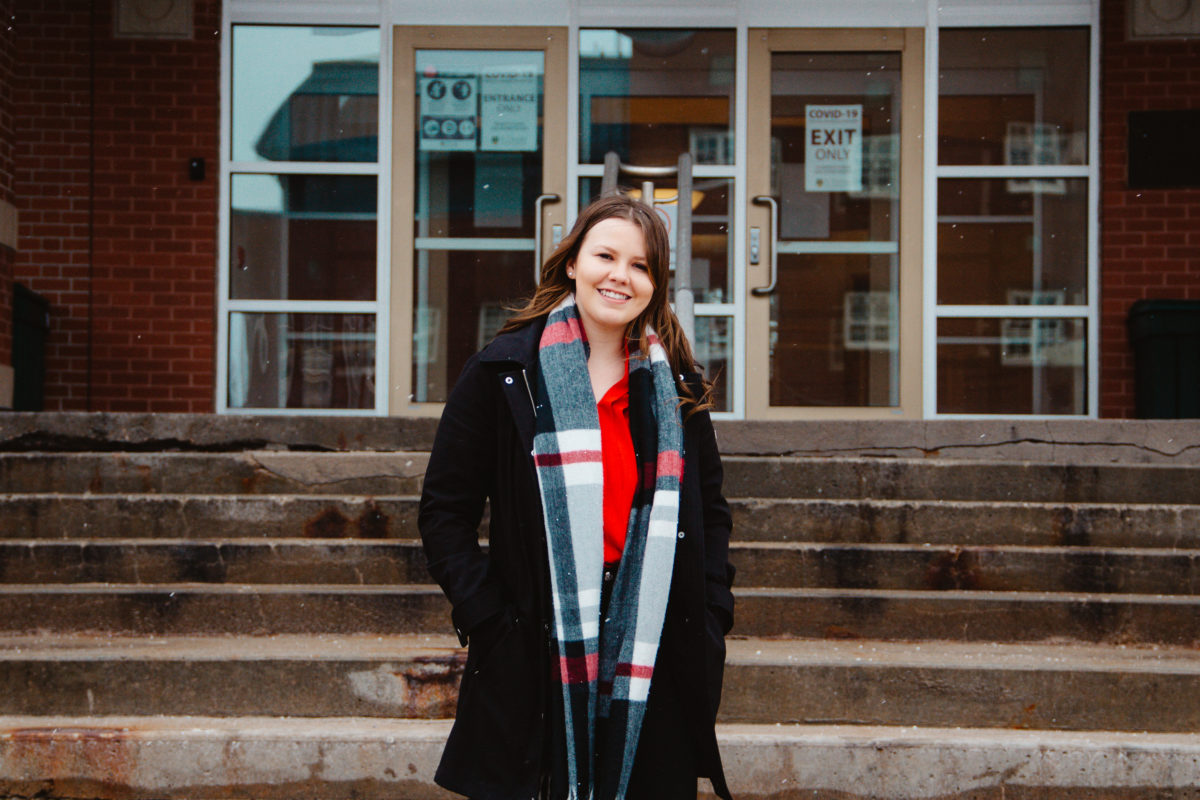

When Susan Love was in Grade 7, she told everyone she would be a social worker — without knowing exactly what that meant. Now, age 23, Love works as a child protection and prevention social worker at St. Mary’s Child and Family Services.
Love’s decision to be a social worker came from her own experience in the foster care system, which she entered at age 12.
“I’ve walked in their shoes, I’ve been there,” she said. “Obviously, I’m aware that my story is not the same as theirs, but I can help use my personal experience for the better in my career.”
Love grew up in an abusive household. Every time someone in town found out about what was going on at home, her family would move — which ended up being around every six months.
In school, Love said she felt like she was playing catch-up and had to work extra hard to keep up.
“I didn’t really have any foundation or stability.”
In her social life, she also felt behind, and said that moving around so much made it hard to maintain friendships.
Many of the classic childhood firsts came in her teenage years.
“I didn’t go to my first movie until I was 14,” she said.
Love is the sixth of eight children, and said her brothers and sisters are a source of support and helped her heal and process trauma later on.
“It helped a lot having seven other people understand what I was going through,” she said.
When she was growing up, Love and her siblings were told they were “troubled kids” by their parents, who put them into a mentorship program with social development. This backfired and the children told social development about the abuse in their house.
On Jan. 26, 2011, Love rode the bus to school for a normal day. After her lessons were over, her mentor took her to a building where she joined the rest of her siblings.
They told the kids they would be taken away from their parents until everything was sorted out — about a week or so.
After a week, they were permanently removed from their house.
At that time, only five of the kids lived at home. Love and her younger sister were sent to one foster home, her two older brothers went to a different one and her older sister was placed in a separate foster home.
Six months later, her two brothers joined her and her younger sister at their foster home in Fredericton.
“I was really fortunate to grow up with three of my siblings, out of the seven I had, which is really uncommon, or unheard of.”
She started high school midway through the school year. Her older sister, who she said was a role model, was getting a degree from St. Thomas University at the time.
This was around the time Love set her mind on social work, telling everyone that she would go to STU to study the practice.
People told her she might change her mind, but in 2020 she received her bachelor of arts from STU and earned her bachelor of social work there this January.

Online school was difficult — consisting of hours and hours of audio lectures, PowerPoint slides and videos of classes. She had a group chat too, with students in her cohort, who all felt similarly about the struggles of online school and how much was self-taught.
The hard work paid off when she attended the first day of her three month placement with St. Mary’s Child and Family.
“It was a very surreal feeling,” said Love. “I was like, ‘wow — my younger self is screaming right now.’”
She became part of the three per cent of children who grew up in the foster care system to graduate from college, a statistic Love’s social worker shared with her when she was still in high school. She was shocked at how low the number was and immediately wanted to be part of the percentile.
“I feel very fortunate to be where I am today, because a lot of times you don’t get that outcome.”
Love had a lot of different social workers growing up, and often times she felt like she had to reiterate her trauma to them.
One social worker, who is retired now, stayed on with Love for around five or six years. She used to joke that Love was the poster child for the foster care system. The social worker teared up when Love’s high school graduation photos came in, remarking on how rare of an accomplishment this was.
Love thinks this social worker was one of the main reasons she got through high school and university.
“She always fought for me.”
This social worker showed her resources, some that helped pay for her tuition.
The work Love is doing now revolves around providing resources to families and children. Day-to-day, she provides counselling services and creates programs that help with food insecurity.
She wants her clients to know she cares about every case.
“I want to advocate for them.”
On the 11th anniversary of the day she was removed from her home, she posted her story on Facebook. She hadn’t planned to post anything for graduation, but she saw her Facebook feed filling up with posts from her classmates.
Love drafted the post while finishing a night shift. She posted it to Facebook and LinkedIn, turned off her phone and went to bed.
She woke up to 500 likes on Facebook. The post has amassed over a thousand reactions now, with 16,000 likes and 900,000 views on LinkedIn.
Love received messages from fellow social workers and other people who grew up in similar situations. Someone asked her to be on their podcast and a non-profit joined her on a Zoom call to talk about ways to improve the foster care system.
She was shocked her post garnered this reaction.
“I can’t believe that many people think I’m an inspiration,” she said. “I spent so much time trying to be just a normal kid that I didn’t realize what I was doing was so impactful.”
Five years ago, Love said she wouldn’t have been able to tell someone what went on in her childhood. She thinks her time in the social work program and seeing behind the scenes helped her heal.
“I can finally share my story.”
